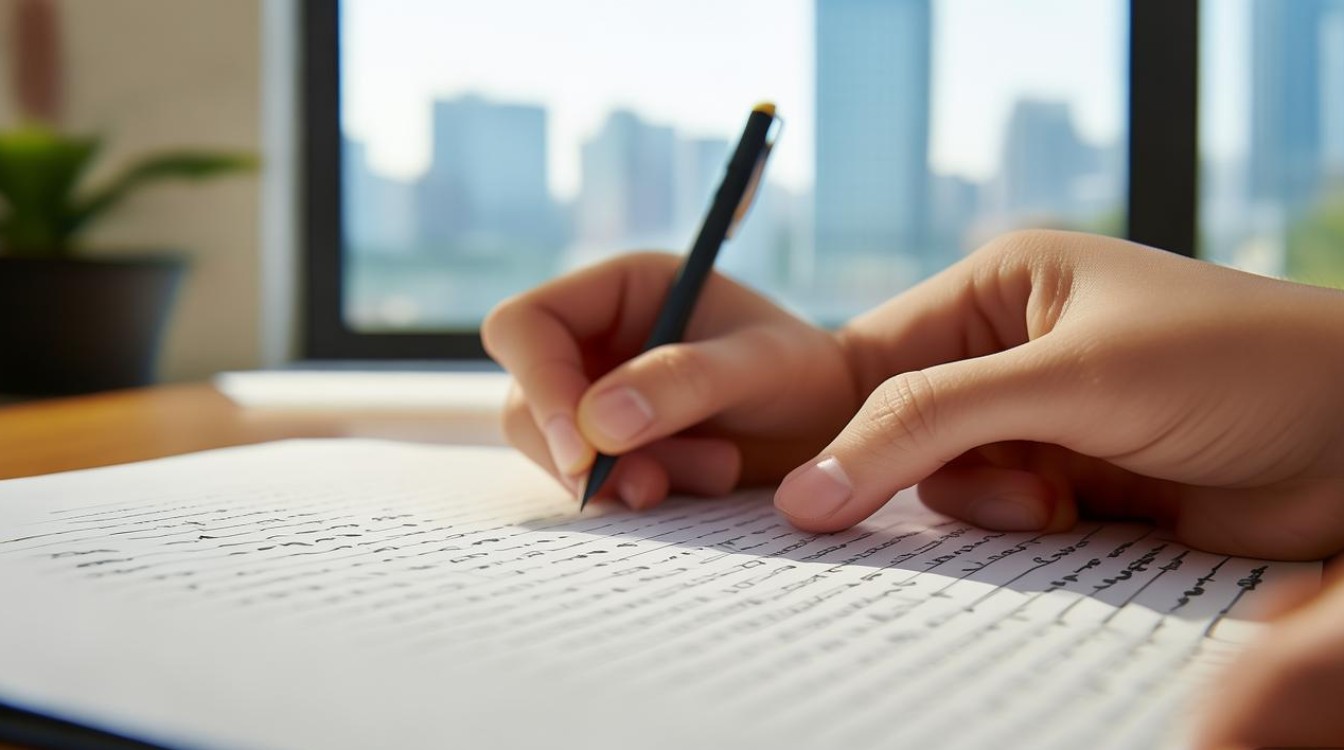Of course! "Handwriting" is a very common and versatile topic in IELTS Speaking, appearing in Part 1, and often as a springboard for Part 2 and Part 3. Here’s a comprehensive guide to help you tackle this topic effectively, with vocabulary, sample answers, and tips.

Part 1: General Questions & Answers
In Part 1, the examiner will ask simple, personal questions. Your answers should be direct, a bit detailed, and natural.
Question 1: Do you write by hand very often?
Answer A (Simple & Direct):
Yes, I do. Even though I use my computer and phone for most things, I still write by hand quite a bit, especially for making daily to-do lists or taking quick notes in meetings.
Answer B (More Detailed & Fluent):
That's a good question. I'd say my handwriting usage has definitely decreased over the years. For work and university, I practically live on my laptop. However, I find myself reaching for a pen when I need to brainstorm ideas or make a shopping list. There's something more tangible about it that helps me think.
Question 2: What do you usually write by hand?
Answer A (Simple & Direct):
I usually write down my shopping list, take notes in class, and sometimes I like to write letters or postcards to my friends and family.
Answer B (More Detailed & Fluent):
Hmm, let's see... I mostly use handwriting for practical, everyday things. My grocery list is always handwritten on a sticky note. I also find it's much easier to jot down key points during a lecture or a workshop rather than trying to type everything. And I have to admit, I still enjoy the occasional pleasure of writing a birthday card or a thank-you note to someone. It feels more personal than an email.
Question 3: Do you have nice handwriting?
Answer A (Humble & Honest):
Not really, I'm afraid! My handwriting is quite messy, especially when I'm in a hurry. My friends sometimes joke that they need a decoder ring to read my notes.
Answer B (Confident & Descriptive):
I think it's decent. When I have time and I'm writing slowly, my handwriting is quite clear and legible. But it's not what you'd call "calligraphy" or anything fancy. It's functional, I suppose. I can read it, and that's the main thing!
Question 4: When you were a child, did you like handwriting lessons?
Answer A (Simple & Direct):
Yes, I quite enjoyed them. I remember having a special pen license in primary school, which was a big deal. It felt like a reward for having neat handwriting.
Answer B (More Detailed & Fluent):
I have mixed feelings about it. On one hand, I loved learning how to write the different letters and seeing my progress. On the other hand, I found it a bit tedious when the teacher made us practice the same strokes over and over again. I was always more interested in the creative writing part than the actual physical act of writing neatly.
Part 2: Long Turn (Cue Card)
You will have 1 minute to prepare and then speak for 1-2 minutes on a topic like this:
Describe a time when you had to write something by hand. You should say:
- what you wrote
- why you had to write it by hand
- how long it took you
- and explain how you felt about the experience.
Sample Answer (Band 8-9 Level):
(Start by paraphrasing the cue card.)
"I'd like to talk about a rather memorable experience I had a few years ago when I had to write a lengthy document entirely by hand. This was during my final year of university, just before a major exam.
The thing I had to write was a summary of all my lecture notes for a particularly challenging history course. I had about three months' worth of dense material, and I decided that the best way to truly absorb it was to condense it into a single, handwritten study guide.
I had to do it by hand because I'd read somewhere that the physical act of writing helps with memory retention. I was finding that just reading my typed notes wasn't enough; my brain wasn't engaging with the material deeply enough. I felt that by writing it out myself, I would be forced to process the information more actively, which would make it stick in my mind better.
As for how long it took, it was a real labour of love! I probably spent at least an hour every single evening for about two solid weeks. My hand would often cramp up, and I went through an incredible number of pens and highlighters. It was definitely a time-consuming and sometimes physically painful process, but I was determined.
In terms of how I felt about the experience, it was quite a journey. At the beginning, it felt like a massive chore, and I often questioned my decision. However, as the weeks went on, I started to notice a real difference. Not only was my study guide looking fantastic, but I also felt a lot more confident about the subject. The information was finally sinking in. By the end of it, I felt a huge sense of accomplishment. It was tough, but it was incredibly effective, and I actually scored one of the highest marks in my class on that exam. So, all that effort paid off in the end!"
Part 3: Discussion & Abstract Questions
Here, the examiner will ask more abstract and complex questions related to the topic of handwriting.
Question 1: In the future, do you think people will still write by hand? Why or why not?
Answer:
I believe handwriting will never completely disappear, but its role will certainly diminish and become more specialized. In our daily lives, for work, study, and communication, keyboards and voice commands are far more efficient. However, I think handwriting will endure in specific areas. For instance, in art, like calligraphy or sketching, it's an irreplaceable medium. It also holds a sentimental value that digital communication lacks—think of handwritten letters or personal journaling. So, while it might become a niche activity rather than a necessity, it will always have a place.
Question 2: What are the differences between handwriting and typing?
Answer:
The core difference lies in their cognitive and emotional impact. From a cognitive perspective, research suggests that handwriting engages the brain differently than typing. It involves more complex motor skills and can lead to better memory recall and idea generation. Typing is faster and better for editing and sharing large amounts of information. Emotionally, handwriting feels more personal and deliberate. The unique style of someone's penmanship adds a layer of personality that a standard font lacks. A handwritten note feels like a gift, whereas an email can feel transactional.
Question 3: Is it important for children to learn good handwriting skills in school nowadays?
Answer:
Absolutely, I think it's still very important. While it's true that most future communication will be digital, learning handwriting is about more than just the final product. It's a fundamental part of a child's motor skill development and hand-eye coordination. Furthermore, as I mentioned before, the process of writing by hand aids in learning to read and spell, and helps children organize their thoughts more coherently. It also provides a break from screens, which is crucial for their overall development. So, even if they rarely use it in their adult lives, the skills acquired while learning to write are invaluable.
Key Vocabulary & Phrases
To elevate your score, use more precise and less common vocabulary.
Nouns:
- Penmanship: (n.) The art or skill of writing by hand. (e.g., "My grandfather has beautiful penmanship.")
- Cursive: (n.) A style of writing with joined-up letters. (e.g., "In some countries, they don't teach cursive in schools anymore.")
- Legibility: (n.) The quality of being clear enough to read. (e.g., "The doctor's handwriting was famous for its poor legibility.")
- Calligraphy: (n.) The art of beautiful handwriting. (e.g., "She practices calligraphy as a hobby.")
- Stationery: (n.) Writing materials like paper, pens, and envelopes. (e.g., "I love browsing in stationery stores.")
- Scrawl: (n.) A piece of messy, hurried writing. (e.g., "He left me a note in a messy scrawl.")
Verbs:
- Jot down: (phrasal v.) To write down something quickly. (e.g., "I'll just jot down the address for you.")
- Doodle: (v.) To draw or scribble absent-mindedly. (e.g., "He was doodling in the margins of his notebook.")
- Scrutinize: (v.) To examine or look at something very carefully. (e.g., "The doctor scrutinized the prescription.")
- Decipher: (v.) To read or understand something difficult to read. (e.g., "It took me ages to decipher his handwriting.")
Adjectives:
- Neat / Tidy: Clear and well-formed.
- Illegible: Impossible or very difficult to read. (Opposite of











